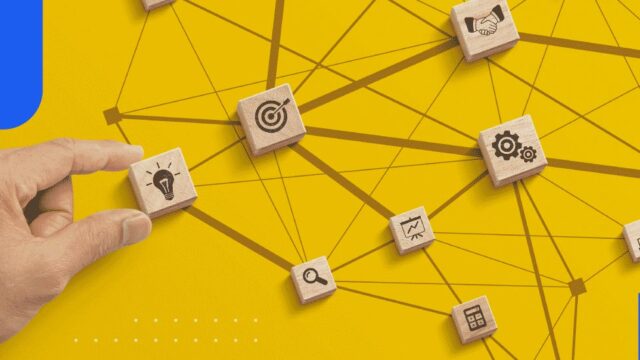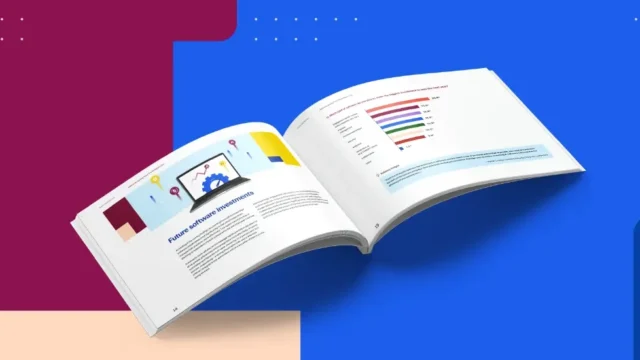
Why Accountants Shouldn’t Use Email for Client Collaboration
New options make client collaboration easier to organize than email.
There’s a famous Maya Angelou quote: “I did then what I knew how to do. Now that I know better, I do better.” This can apply to most things in life, and the digital age of accounting is no exception.
There was a time when email was revolutionary, lightning-fast compared to other methods of communication. It would have seemed like a wonder for client accounting collaboration. Today, however, there are many options that are faster, more secure and much easier to organize.
So if you know better, why not do better? Here are a few reasons why accountants shouldn’t use email as their client collaboration software.
A brief history of email
The internet was not always as common as it is now. In the early 1980s, most forms of communication involved writing letters or calling someone by phone. And paying extra if they lived outside your area code.
The idea of sending a message instantly to anyone, anywhere, from your computer seemed futuristic. But it quickly became common, revolutionizing communication through the 1990s and early 2000s.
Email removed geographical barriers. It was as fast as digitization. It was reasonably secure, appearing in your online mailbox and able to be deleted when read. At the time, it was simply the most efficient form of communication for accountants to reach out to their clients and for clients to respond in their own time.
Today, however, it’s one of many forms of digital communication. Instant messaging, in-app communication, online video chats, and more are all at our fingertips. The idea of sending accounting email to a digital inbox simply isn’t world-changing anymore. Nor is it the most efficient option.
Problems with email collaboration
Alright, so email might be a little old-fashioned by now. But why change if it’s served you well for years? If it’s not broken, why fix it?
The truth is, using email as a client collaboration tool is problematic. It’s always come with its own issues, but there weren’t better solutions at the time. Now that there are, some of those issues are more glaring.
Security
Most of us have either at one point had our email hacked or we’ve received a message from a friend whose email was hacked. These unfortunate events occur because, quite simply, email is not secure. Email messages aren’t encrypted. As long as a hacker can figure out your password, they can get into your email and access all your messages, and even start sending sensitive information via email themselves.
Email scams are common, as well as viruses sent through email. Digital security in accounting is an absolute must in today’s world. If you want a truly secure form of client collaboration, an encrypted, in-app style of messaging is usually the best.
Organization
When file-sharing with clients over email, it’s easy for important messages to get lost in the shuffle. Of course, most email servers come with built-in folders for organization. But even then, with so many folders it can be difficult to remember which email went where and all too easy to sort something into the wrong folder.
One famously problematic issue is the spam folder. This is built into almost all email servers and designed to catch junk email. The problem is that the algorithm that recognizes junk sometimes gets it wrong. If a client is emailing you for the first time, their email can often end up in the spam folder. That important notice you sent to them could do the same on their end.
On the other hand, cloud-based platforms like Caseware can allow for easy, centralized communication where nothing gets lost in the shuffle. Clients can receive email notifications that they have a message. But even if they lose that email, the message itself will be easy to find in the app.
Data and analytics
Client communication can be an important source of data and analytics. Clients need to send over important documents about their finances and business that you may need in order to help them with their accounting needs.
Losing that information through a mass of emails can be more than frustrating. It can slow down your process and lead to a poor rapport with the client. Again, this is where a more centralized, organized option can better serve you and your clients.
Time-wasting
Reviewing multiple emails takes time. Especially if you have to review all the attachments to one and then find the next relevant email through a sea of such messages from all clients. Plus, most email servers will only hold so many emails. At some point, you have to start deleting important messages to make room for more. Your best hope is setting up paper files.
Imagine if all of your communication with one client was in one central location, including all of their documents. And you could easily shift from one communication to the next. Fortunately, this is more than just an idea. It’s very much a possibility with cloud platforms like Caseware PBC Requests.
Making email collaboration obsolete
Email has its place in the history of accounting and client collaboration. Today, however, more efficient options have simply made it obsolete.
PBC Requests is just the latest from Caseware’s suite of cloud-based accounting solutions. With PBC Requests, you can communicate with clients easily from a central, encrypted location for optimized organization and security.
You can manage client requests with automatic tracking and send real-time status updates so you’re always on the ball. Keep all your client communication in one place and send messages individually or to all your clients in bulk.
It’s easier than ever to integrate and review new documents from clients and to automatically designate where they’ll go within your platform. Plus, there’s customizable content so you can easily meet your firm’s, and your client’s, specific needs.
Want to learn more about how Caseware PBC Requests can help revolutionize your accounting client communication? Contact us today for more information.







